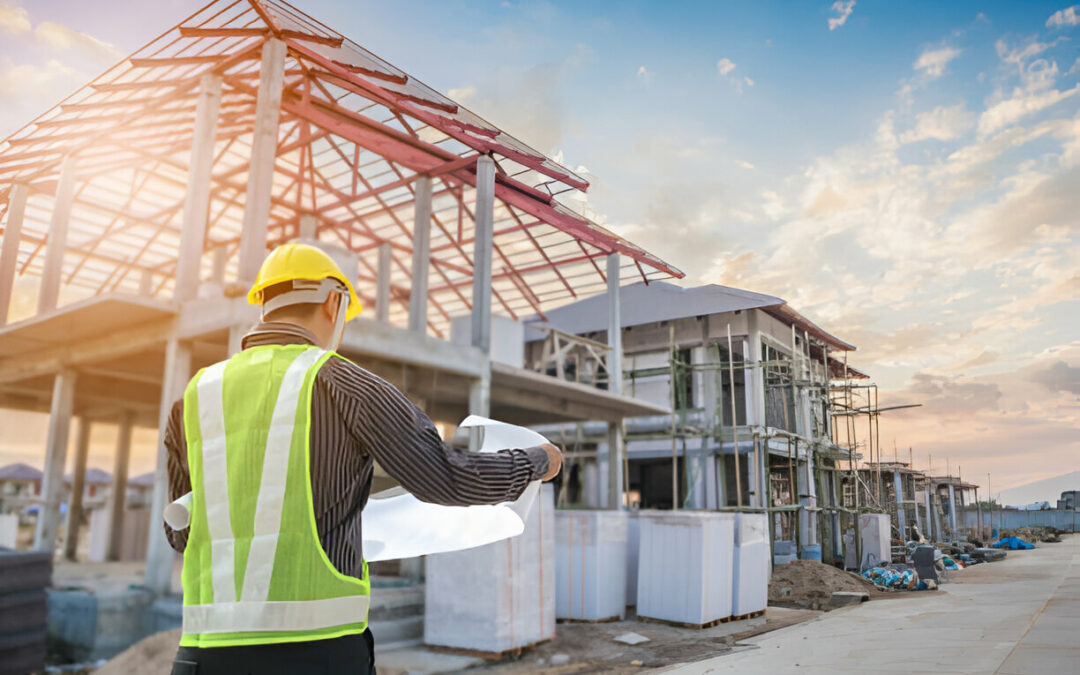“It’s a brand-new home, what could possibly be wrong?”
That’s a common thought among new homebuyers. After all, everything looks clean, modern, and untouched. But just because a house is newly built doesn’t mean it’s free from flaws.
In fact, hidden issues are more common in new construction than you might think (including minor oversights to major code violations). That’s why a new construction inspection is one of the smartest investments you can make before moving in.
In this blog, we’ll uncover the surprising problems inspectors often find in “move-in-ready” homes, and how an independent inspection protects your investment.
What is a New Construction Inspection
A new construction inspection is a professional, third-party evaluation of a newly built home. It is done after the construction is completed, but before you move in. The goal of this inspection is to identify any defects, code violations, or incomplete work that the builder might have missed. It is an opportunity to catch the mistakes and get them fixed at the initial stage.
Isn’t the Builder’s Inspection Enough
Yes, most builders do a final walkthrough to check the home. However, the inspection from the builder is not designed to catch craftsmanship flaws or future problems.
A third-party new construction inspection is independent. That means the inspector checks everything while being unbiased. Their job is to ensure you are getting the quality you paid for.
Hidden Issues a New Construction Inspection Reveals
You’d be surprised to see the issues inspectors find in homes that are supposedly ready to move in. Some of those issues are listed below:
-
Improper Roof Installation
A few missing nails or poorly installed flashing might not be evident from the ground, but they can lead to serious leaks over time.
-
HVAC Shortcuts
Ducts that aren’t appropriately sealed, units that aren’t sized correctly for the home, or poor airflow design can all affect energy efficiency and comfort.
-
Electrical Problems
Loose outlets, overloaded circuits, or incomplete grounding are often found in new homes. A professional inspector can identify such problems with the electrical system.
-
Plumbing Defects
Inspectors have found leaky pipes, improperly sloped drains, or fixtures that aren’t sealed properly. Remember that the minor leaks can cause bigger problems in the future.
-
Insulation Gaps
Even the small missed spots in the walls or attic insulation can be problematic. It can lead to energy loss and higher utility bills.
-
Structural Concerns
In some cases, there can be uneven flooring, poor framing, or signs of settlement in the foundation. It might be ignorable, but in the future, these can turn into major structural concerns.
-
Cosmetic Issues
Paint drips, cracked grout, poorly aligned cabinets, or scratched flooring might not affect safety, but when you are paying for a finished product, you deserve quality.
Benefits of a New Construction Inspection
A new construction inspection is beneficial for the homeowners. The inspection helps to:
- Have Peace of Mind:
As you exactly know, you are moving into a perfect home that has no flaws.
- Better Builder Accountability:
When you have a thorough report in hand, you can assess the builder’s work and request repairs before closing.
- Smoother Final Walkthrough:
When you have an expert’s review, you describe the problematic spots to the builder
- Strong Resale Value:
As this inspection report proves your home was built and maintained properly, it can sell at a good price.
- Have Fixes in Warranty:
Spotting issues at the earliest helps you to get them fixed in the builder’s warranty. Once you have not moved in, you can claim them easily.
When to Schedule an Inspection for a New Construction
Ideally, a final walkthrough of a new construction is scheduled when the builder marks the construction work complete and the house is ready for move-in. However, some buyers also choose the phase inspections to ensure that the home is being built right. The phase inspections include:
- Pre-Drywall Inspection: After installation of framing, plumbing, and electrical system, before installing drywall.
- Final Inspection: After completion of the construction work, right before closing.
- 11-Month Warranty Inspection: Just before the builder’s one-year warranty expires.
Each stage catches different things and gives you leverage to fix issues before they turn into expenses.
Final Thoughts
New doesn’t always mean perfect. A new construction inspection is one of the smartest moves you can make before moving into a new home. It gives you a deeper look behind the fresh paint and clean finishes to spot flaws that could cost you later.
To have all the benefits of a new construction inspection, you should get the newly built home inspected by the licensed inspectors of Norway Hill Home Inspections. Schedule your inspection and let the professionals guide you to have a perfect new home.

